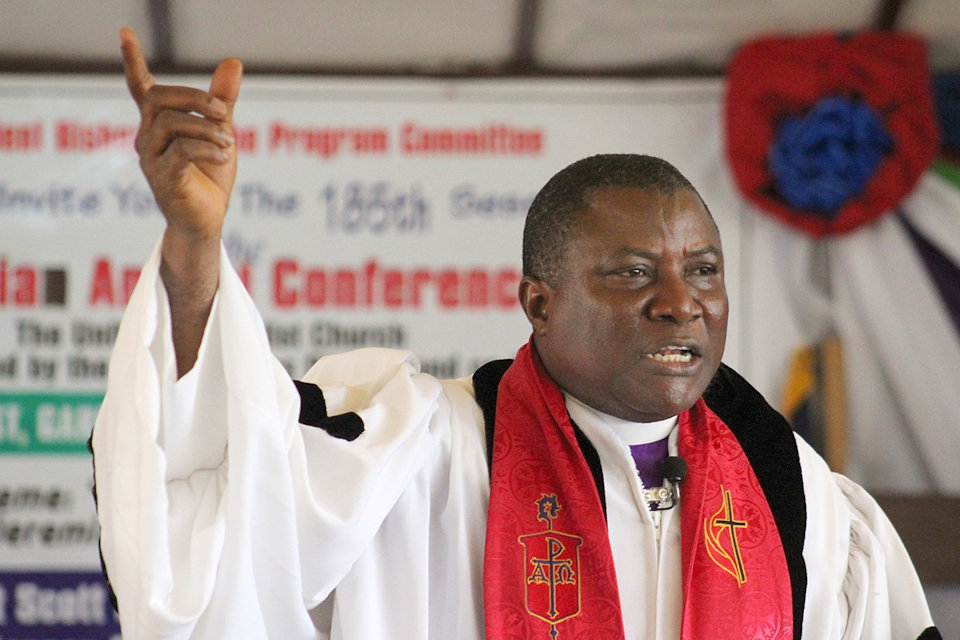The United Methodist Church, grappling with internal discord over the issue of same-sex marriage, convened its 192nd annual conference in Gbarnga, Liberia, in February 2025. Presiding over the conference, Bishop Samuel J. Quire Jr. delivered a resolute address, emphasizing the church’s unwavering stance against same-sex marriage and its commitment to upholding traditional biblical interpretations of marriage as a union exclusively between a man and a woman. His pronouncements underscored the deep divisions within the denomination, divisions that had intensified following the 2024 General Conference where the church solidified its opposition to same-sex marriage and the ordination of LGBTQ+ clergy.
Bishop Quire’s message resonated with a significant portion of the attendees, who expressed their appreciation for his steadfast leadership in navigating the turbulent waters of this contentious issue. He urged the church to speak with a unified voice and resist succumbing to external societal pressures, maintaining that the church’s fidelity to biblical principles should remain paramount. While acknowledging the importance of fostering an environment of love and acceptance for all individuals, he stressed that this inclusivity must not come at the expense of compromising core doctrinal beliefs.
The debate surrounding same-sex marriage within the United Methodist Church reflects a broader societal struggle between traditional interpretations of religious texts and evolving social norms. The church, like many other religious institutions, finds itself at a crossroads, attempting to reconcile deeply held convictions with the growing acceptance of LGBTQ+ rights and relationships. This tension has led to internal strife and the potential for further fragmentation within the denomination. Bishop Quire’s pronouncements, while welcomed by some, likely exacerbated the existing divide between those who advocate for a more inclusive approach and those who adhere to a more traditional interpretation of scripture.
The 2024 General Conference served as a pivotal moment in this ongoing debate, solidifying the church’s official stance against same-sex marriage and LGBTQ+ clergy ordination. This decision, however, did not quell the internal dissent, with many congregations and individuals continuing to advocate for greater inclusivity. The Gbarnga conference, against this backdrop, became another arena for the expression of these differing viewpoints. Bishop Quire’s address, while intended to reaffirm the church’s official position, also served as a reminder of the deep fissures that run through the denomination.
The United Methodist Church’s struggle is emblematic of a larger conversation taking place within many religious communities worldwide. As societies become increasingly diverse and accepting of different sexual orientations and gender identities, religious institutions are grappling with how to respond. Some have chosen to adapt their doctrines and practices, while others have doubled down on traditional interpretations. The United Methodist Church, with its deeply entrenched divisions, exemplifies the challenges and complexities of this ongoing dialogue.
The path forward for the United Methodist Church remains uncertain. The deep divide over same-sex marriage and LGBTQ+ inclusion shows no signs of abating, and the potential for further schism looms large. While Bishop Quire’s address aimed to solidify the church’s official stance and project an image of unity, the underlying tensions remain unresolved. The coming years will likely be crucial in determining whether the church can find a way to bridge these divides or whether it will ultimately fracture into separate denominations, each holding distinct perspectives on these crucial issues. The Gbarnga conference, rather than providing a resolution, served as a stark reminder of the deep and potentially irreconcilable differences within the United Methodist Church.














